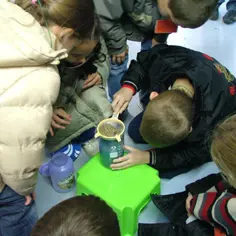
Environment and Biodiversity
Place
France
Sponsor
Pascale Ceccaldi, Veolia Eau
Project leader
UNCPIE
« What makes this project so original is the interactive element, with children actually onsite learning about each stage in the water treatment process. They become fully involved since they're made to feel that they're on an important mission to help the Roman rat understand how modern water treatment processes work. »
Pascale Ceccaldi
This is the story of a small Roman rat called Epuratus who has been sent through time to discover the secrets of modern water treatment techniques. When he gets home, he will be able to help advance Roman civilisation in this area. "What are the different sources of pollution? How can sand, fatty substances and large objects be removed from waste water? What does biological treatment entail?": he will find the answers to all these questions thanks to a specially designed game.
As the little hero of a teaching tool aimed at older primary (8-11 years) and secondary school (1st and 2nd year) children, Epuratus was dreamt up as part of an initiative undertaken in Burgundy by the CPIE (Centre permanent d’initiatives pour l’environnement) for the Autunois region, in partnership with the local branch of the Générale des Eaux in Autun. In an initial phase, these two partners worked on making school trips to the Autun municipal waste water treatment plant both fun and educational.
Learning through experimentation
The adventures of Epuratus are presented in the form of two chests containing everything needed for a fascinating game of adventure. With the assistance of an environmental facilitator, children are encouraged to solve a number of riddles using the "treasure" contained in the chests. For instance, by manipulating wooden pallets, foam balls, and various models, the budding scientists gradually get to grips with the issues surrounding treatment of waste water.
Fine-tuned after being tested on twenty or so classes from the Autunois region, the story of Epuratus is now ready to be distributed on a wider scale with the support of the UNCPIE. The Veolia foundation has been asked to help fund this project's "industrialisation" phase. The 50,000 euros in funding will help cover the cost of manufacturing 100 Epuratus games (with two chests and a folder containing ten datasheets per game) which will be used by the 72 CPIEs in France during school trips to waste water treatment plants. The days of the cloaca maxima in Rome are clearly numbered !

